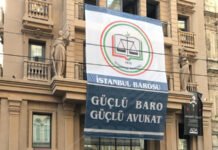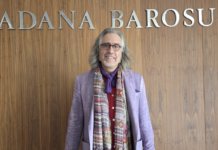The Turkish parliament on Wednesday dismissed a bill proposing that education be allowed in the Kurdish language, citing conflicts with the constitutional provision of Turkish as the country’s official language, the Medya News website reported.
The parliament speaker’s office rejected the proposal, declaring it unconstitutional and saying, “The proposal contradicts the constitutional provision that Turkey is an indivisible entity, with Turkish as its language.”
The bill, submitted on February 15 by Gülistan Kılıç Koçyiğit, deputy group chair of the pro-Kurdish Peoples’ Equality and Democracy (DEM) Party, aimed to secure constitutional protection for education in mother tongues and to include Kurdish as a language of instruction in the Turkish education system.
“Dismissing this bill not only undermines our efforts to protect and promote the Kurdish language but also disregards the cultural diversity that exists within Turkey,” said Kılıç Koçyiğit. “We will continue to fight for the rights of Kurdish speakers and for the recognition of Kurdish as a language of education.”
Despite the parliamentary rejection, advocates for Kurdish language rights remain determined to push for legislative and policy changes that will allow for greater use of Kurdish in educational and official settings.
On the same day as parliament’s rejection of the bill, there were protests across Turkey, with demonstrators demanding that Kurdish be recognized as an language of education.
International observers and human rights organizations have frequently criticized Turkey for its policies towards the Kurdish population, calling for more inclusive and equitable treatment of all linguistic and ethnic groups within the country.
Despite being Turkey’s largest minority, Kurds do not have official recognition, and their language is generally excluded from the public sphere with the exception of certain progress made in the early 2000s as part of the country’s now-frozen EU accession process.
Although some restrictions on the use of the Kurdish language have been eased, such as in the media, anti-government media outlets broadcasting in Kurdish continue to face harassment, intimidation and abusive prosecution.
Courts usually do not allow individuals to make statements in Kurdish, and prisons charge inmates translation fees for the review of Kurdish-language publications or letters that they exchange with the outside world.
Kurds continue to suffer hate speech and hate crimes for speaking their language in public, such as a language teacher who last year received numerous threats over a video in which she was seen teaching children the Kurdish names of southeastern provinces.
The Kurdish language is also usually excluded from public services such as multilingual health or safety-related pamphlets or hotlines that often include languages of much smaller immigrant or expatriate communities such as Arabic and Russian.















